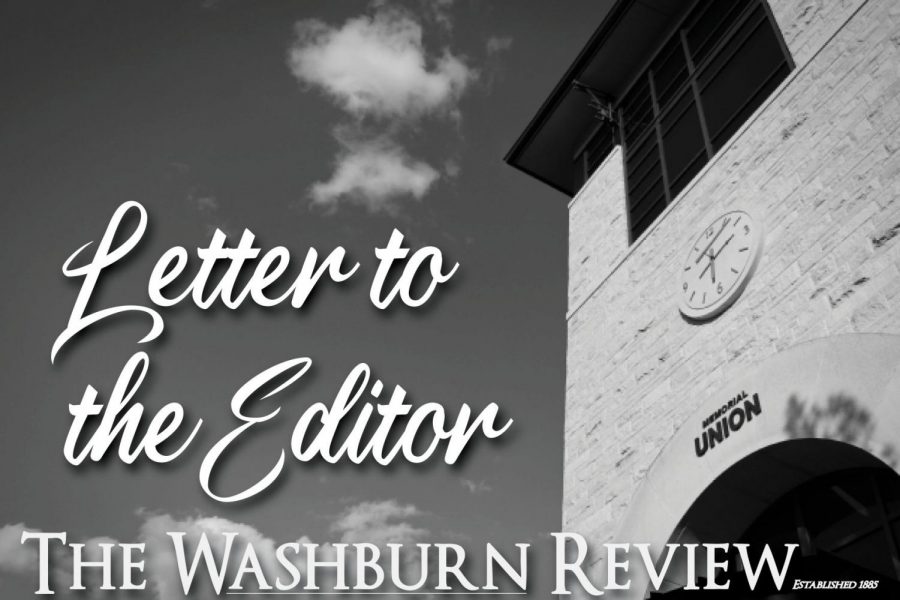Letter to the Editor
March 4, 2019
Last summer I spent close to thirty hours planning a female leadership conference that focused on empowering politically active women. I was inspired to pursue the idea when six of the seven university student body presidents elected for the 2017-2018 school year at Kansas universities were women. We met monthly at the Kansas Board of Regents, where we discussed policy and university relations. It didn’t take long for the other female student body presidents and me to recognize a pattern in our day to day experiences. We were frequently dismissed, demeaned, and disappointed. We all faced, regardless of school size or political affiliations, nearly identical problems in our diverse Senates and among university administrations. I felt I suddenly understood why so many women pass up leadership positions, and I was inspired to do my part to change the status quo. Hence, the conference planning begun. The conference was to be nonpartisan with many female role models from around the state, including female politicians, as speakers. We had a long list of women who, upon hearing the purpose, were thrilled to have the chance to network and mentor young female students. Professors from many academic departments were preparing breakout topics, and some of our school’s biggest student organizations were actively recruiting young women to assist in executing our plans. The other female presidents and I chatted often about how exciting it would be to see this all come together.
During my first and only meeting with the university’s Student Life office and a representative from Academic Affairs, where I’d hoped to get approval for the plans, I was told Washburn could not formally support or endorse a female-based conference where men were “clearly not included.” As I left, I felt dejected and, frankly, turned away with a patronizing pat on the head but I understood the message: our university would not invest its resources in a female-oriented event of this caliber. Basic rights in women’s leadership have been stunted for the entirety of western civilization, yet some find it justifiable to put remedy efforts on the backburner to avoid making any men feel left out.
Fast forward a few months. I received an invitation for the Healthy Masculinity dinner, hosted on Washburn’s campus and sponsored by the Student Life office. I attended the first session as Student Body President and saw fewer than ten women in a room packed with male students. I sat with another woman, mandatorily sequestered to a back table, while the men spoke on toxic masculinity.
At the second Healthy Masculinity dinner, only two women were in attendance. I fully support these dinners, for I believe it is critical to address this facet of men’s health, especially as it relates to nearly all of the issues I had hoped to explore at the female leadership conference. To my way of thinking, these two female/male examples underscore a flagrant double standard and a sexist one at that. What I feel needs to be acknowledged is the false notion that addressing an eternity of oppression of women’s leadership and their voices was in some skewed way morally equivalent and equally as needed as talking about the issue of toxic masculinity. And, making the need even greater, minority female leadership has been virtually nonexistent. This creates, with the help of false exploitation of liberal politics, the absence of minority women in the conversation again and again.
I’ve now heard that a female leadership event is planned for the end of the semester. I am overjoyed that the university has finally elected to address this issue, however I must acknowledge the irony in it occurring only after complaints were made that the comparable women’s conference idea was rejected just months before. At what point are those efforts simply superficial and curt attempts to bury the systemic inequities within the higher education system? When the men and women, faculty and students alike, that preach on empowerment are the same individuals benevolently discriminating with calls for blind equality, what progress is made? In fact, is putting off the conference until after the men have had their turn an example of toxic masculinity in play? I believe it is.
Universities have a responsibility to maintain an empowering and discrimination-free environment. It is clear to me, from this experience, that in some instances they prefer to play it safe instead of being progressive on the real-world issues of sexism. I write to raise this awareness: even on university campuses, supposed bastions of equality and fairness, sexism is still alive and well, discouraging the aspirations and undermining the educations of 64% of the student body.



